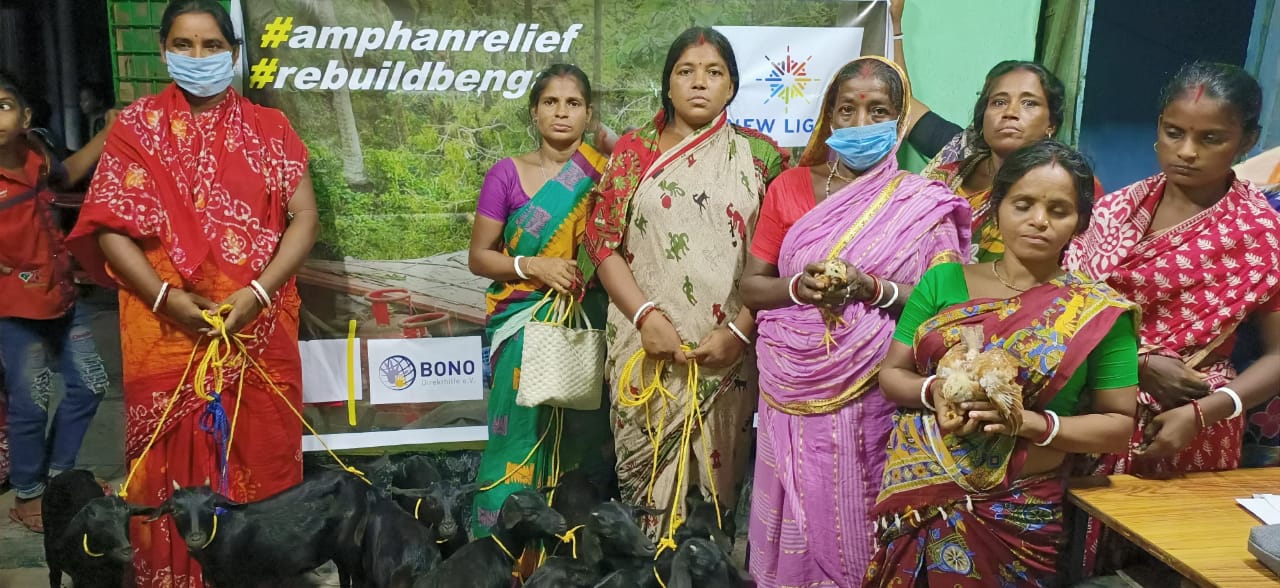
The state of West Bengal sits between the Himalayan hill region and the Bay of Bengal making the region particularly vulnerable to climate change. Every time a natural calamity hits, the marginalised communities are pushed further into the cycle of poverty. While men undergo unsafe migration to escape starvation, young girls and women become easy prey for traffickers. Both male and female, sometimes as young as eight years, are forced to work as laborers, domestic and sex workers. With 8205 registered cases, West Bengal ranks second in the list of child trafficking cases, according to Save the Children's analysis of 2018 National Crime Records Bureau data.
Our programme Unmochon focuses on districts on extreme southern fringes of the delta where climate change and displacement has increased the vulnerability of marginalized communities. Under our regreening initiative, we build nurseries where women carry out seed collection, germination, and planting mangroves to fight soil erosion and create a buffer zone between marine and terrestrial boundaries. So far, we have distributed and planted more than 5,000 saplings. We also distribute chickens and goats among the community members so that families aren’t forced to ‘send their women out’ in order to escape starvation.